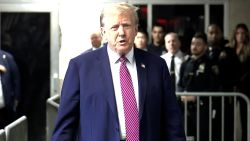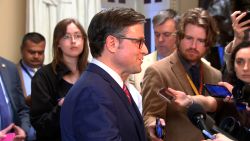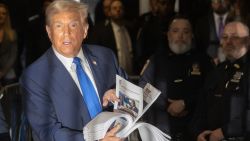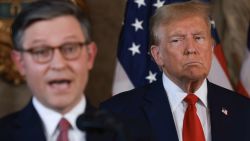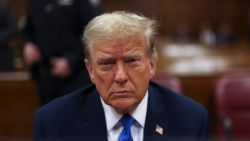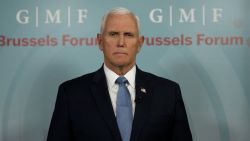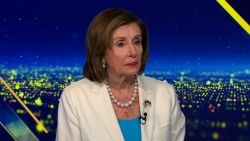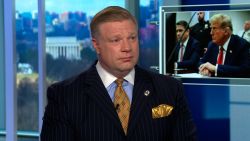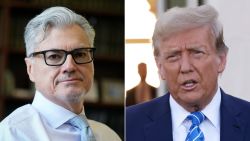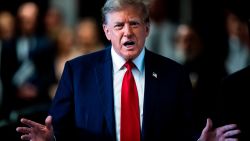Editor’s Note: In this weekly column “Cross-exam,” Elie Honig, a former federal and state prosecutor and CNN legal analyst, gives his take on the latest legal news and answers questions from readers. Post your questions below. The views expressed in this commentary are his own. View more opinion articles on CNN. Watch Honig answer reader questions on “CNN Newsroom” at 5:40 p.m. ET Sundays.
Special Counsel Robert Mueller’s report has arrived. While the report is more than 400 pages long, it raises countless new questions – so many, in fact, that we decided to run a special installment of “Cross-exam” to answer them. Let’s dig in.

Stan, Montana: Mueller spent two years investigating. Why did we need a meaningless summary filtered by Attorney General William Barr?
“Meaningless” would have been an improvement. Now that we’ve seen the report itself, we know that Barr’s four-page summary – which he later claimed was not actually a summary – was misleading and manipulative.
Two main things jump out about how Barr used his letter to preemptively distort perceptions of Mueller’s report. First, Barr told us that Mueller could not decide the obstruction issue, which “leaves it to the Attorney General.” Predictably, and true to his previously stated hostility to Mueller’s obstruction inquiry, Barr gave a thumbs-down – declaring that obstruction charges do not apply to President Donald Trump.
However, Mueller likely had no intention for Barr to jump in. Nowhere in the report does Mueller call on the Attorney General to decide the obstruction issue. Rather, Mueller notes that he specifically “determined not to apply an approach that could potentially result in a judgment that the President committed crimes” (Volume 2, Page 2) because Department of Justice policy prevents indictment of a sitting president.
Given that Justice Department policy ties Mueller’s hands on charging Trump criminally, Mueller appears to refer the obstruction matter to Congress: “[w]ith respect to whether the President can be found to have obstructed justice by exercising his powers under Article II of the Constitution, we concluded that Congress has the authority to prohibit a President’s corrupt use of his authority in order to protect the integrity of the administration of justice.” (Volume 2, Page 8).
This line is somewhat ambiguous. Mueller appears to refer the obstruction inquiry to Congress to consider impeachment proceedings, though he might simply be mentioning that Congress has the power to take legislative action. Either way, it is notable that Mueller invoked Congress in his analysis of the obstruction issue. Yet in his four-page summary, Barr made no mention of Mueller’s call to Congress on obstruction – which might be the single most significant line of the entire report.
Second, Barr quoted the Mueller report selectively and strategically to protect Trump. For example, Barr told us the good news for Trump on Russia: Mueller found that “the investigation did not establish that members of the Trump Campaign conspired or coordinated with the Russian government in its election interference activities.”
Yet that quote from Barr turns out to be only the second half of a complete sentence. In the first half of that same sentence – which Barr clipped off – Mueller tells us, “Although the investigation established that the Russian government perceived it would benefit from a Trump presidency and worked to secure that outcome, and that the Campaign expected it would benefit electorally from information stolen and released through Russian efforts…” (Volume I, Page 1-2). This kind of intentional, selective quotation would get an ordinary lawyer torn apart by a judge.
For nearly a month since he first received Mueller’s report, Barr gave Congress and the American people an inaccurate and disingenuous account of Mueller’s findings. Now that the report has been released, we can clearly see how Barr issued a selective summary of Mueller’s findings that benefited Trump. Through his handling of the Mueller report, Barr has thrown his credibility and independence in the gutter.
Patti, Texas: Did Mueller deliberately avoid any conclusions about Trump’s legal culpability because he was following existing Justice Department precedent and knew that only Congress could take action against the president?
Yes. Mueller based his decision not to come to a prosecutorial conclusion on obstruction largely on the Justice Department policy against indicting a sitting president.
Here’s another area where Barr was dishonest, stating during his press conference, before the release of the report, that Mueller did not decide obstruction because the evidence was ambiguous – when in fact Mueller made clear in the report that he did not decide obstruction largely because of the existing policy. Mueller declined to make a typical charge-or-no-charge prosecutorial decision because “fairness concerns counseled against potentially reaching that judgment when no charges can be brought.” Mueller also noted, perhaps suggestively, that it is entirely permissible to investigate a president while he is in office and to indict after the term ends. (Volume 2, Page 1).
And then Mueller gave us a perplexing construct: “if we had confidence after a thorough investigation of the facts that the President clearly did not commit obstruction of justice, we would so state. Based on the facts and the applicable legal standards, however, we are unable to reach that judgment.” In other words: if we concluded it was not a crime, we’d tell you – and we’re not telling you.
Matt, Arizona: How could the White House be given access to the report before Congress?
Barr did Trump a favor by providing a redacted version of the Mueller report to the White House before Congress or the American public got to see it. While there was no legal prohibition against Barr providing the report, the move reflected Barr’s political solicitude of Trump.
Barr claimed that he provided an advanced copy to the White House “consistent with the Ethics in Government Act.” Barr’s defense here is limp and confused. The law to which he refers expired in 1999, and was used before that to deny an advance copy of Independent Counsel Ken Starr’s report to the White House.
Barr did not need to offer any legal explanation. He was within his rights to give the report to the White House early – even though it was plainly political to do so. But rather than owning up, Barr instead offered up a flimsy legal justification for his baldly political act.
Karie, North Dakota: How can Mueller conclude there is no collusion when Donald Trump Jr. accepted a meeting with Russians to get damaging information on Hillary Clinton and hurt her election prospects?
Donald Trump Jr. danced between the raindrops of a criminal charge based on his participation in the June 2016 Trump Tower meeting with a group of Russians who had offered dirt on Hillary Clinton (prompting Trump Jr.’s infamous e-mail response “if it’s what you say I love it”).
Mueller spends 14 pages (Volume 2, Pages 110-123) in the report describing his factual findings about the Trump Tower meeting and another eight (Volume 2, Pages 183-190) discussing the potential criminal implications, noting that the meeting “could implicate the federal election-law ban on contributions and donations by foreign nationals.” (Volume 2, Page 185). Ultimately, what separated Trump Jr. from an indictment, according to Mueller, was that Trump Jr. did not provably have the heightened understanding of the law required to convict a person of campaign finance crimes. (Vol. 2, Pages 187-188). In other words, if Trump Jr. had had a slightly more sophisticated understanding of campaign finance laws, he might well have found himself on the wrong end of an indictment for soliciting or receiving illegal foreign campaign contributions from Russians.
Charles, Indiana: Does the Mueller report include background on the Steele Dossier and its use in FISA subpoenas?
Mueller’s report dealt a death blow to the conspiracy theory that the investigation of Russian election meddling began with a Foreign Intelligence Surveillance Act (FISA) warrant based on the controversial Steele Dossier.
Rather, we now know for sure that the Russian interference investigation began when Trump campaign official George Papadopoulos revealed to a foreign government that the “Trump Campaign had received indications from the Russian government that it could assist the Campaign through the anonymous release of information damaging to” Hillary Clinton (Volume I, Page 1). (Papadopoulos was later convicted of lying to the FBI about those contacts). Mueller confirmed that “that information prompted the FBI on July 31, 2016, to open an investigation” into connections between the Trump campaign and the Russian government. (Volume I, Page 1).
Notwithstanding this straightforward finding of fact by Mueller, Barr testified in Congress that “I think spying did occur.” This statement by Barr – in which he used a non-legal term that also happens to be one of Trump’s favorite political rallying and fundraising points – is (1) false because a FISA judge lawfully approved the controversial warrant, and (2) entirely beside the point because, as we now know, it had nothing to do with the origins of Mueller’s work in the first place.
Three questions to watch this week:
1. Will Congress call Barr and Mueller to testify, and will we get an answer on whether Mueller intended to refer the obstruction case to Congress?
2. Will Trump’s team issue their “rebuttal,” and how will they respond to Mueller’s evidence of Russian contacts and potential obstruction?
3. Mueller referred 14 cases to other prosecutors. We only know about two of them. What are the remaining 12?




